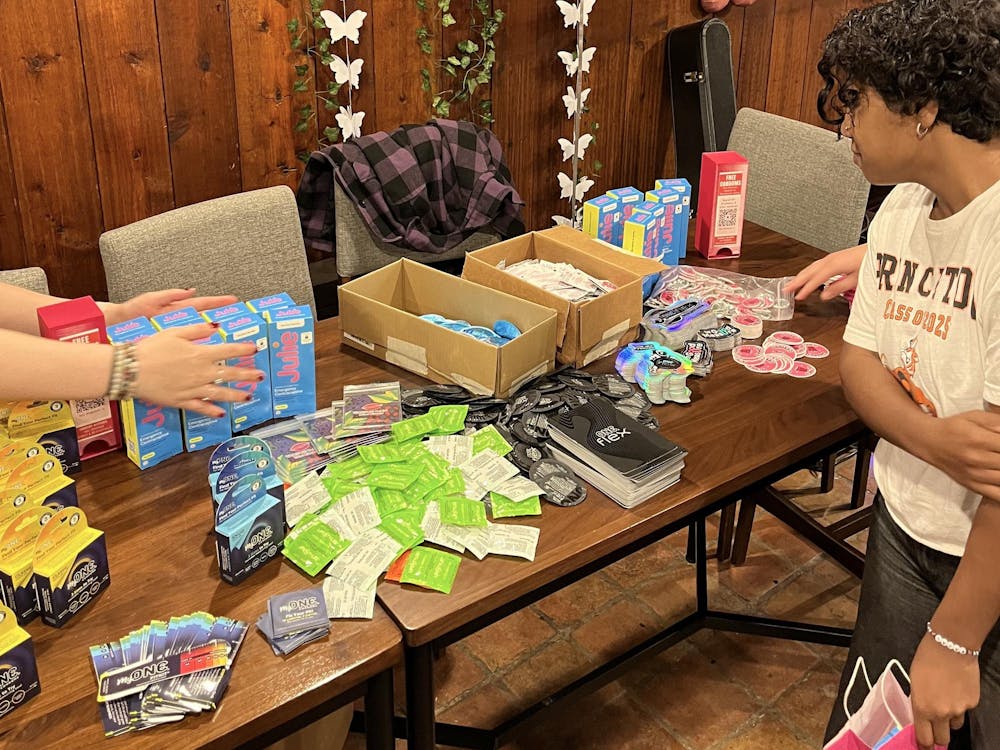Music is often thought of as a universal language — one that brings communities together. Composer Pascal Le Boeuf GS uses his music to do just that by combining contemporary classical music and jazz into what he calls a “new music” community.
Now, Le Boeuf was nominated for a Grammy for his composition, “Alkaline,” in the Best Instrumental Composition category. “Alkaline” is from Le Boeuf’s new album, “imaginist,” which is recorded by the Le Boeuf Brothers and the JACK Quartet.
Le Boeuf described his style of music as “anything that brings together people from different communities,” and that “Alkaline” is meant to bring the jazz and contemporary classical communities together.
“I try to avoid genre and emphasize the community aspect [of music],” said Le Boeuf. “Jazz means a million things but there’s communities within that value different things [about it].”
Le Boeuf said that the nomination was completely surprising, explaining that he heard about it from a fellow musician before checking his email to find out for sure.
“It was a huge honor, and it was very encouraging,” he said.
Out of the 438 records that were up for nomination, Le Boeuf’s “Alkaline,” was one of the five nominations that were chosen.
“It’s nice to get a nomination and receive recognition, but at the end of the day it doesn’t really mean anything except that some people listened to the music,” Le Boeuf said. “I hope it doesn’t change my outlook on music or things that I’m doing. The real motivation for me is just the creation of music itself and the engagement with the community.”
Le Boeuf’s composition, “Alkaline,” is a metaphor for alkalinity, a way to measure the solution needed to balance the acidity of water, and he tried to extend the concept of alkalinity to the larger picture of society.
“When social injustice is introduced to society, how do we recover from that?” Le Boeuf mused. “How do we recover equilibrium and what is the tipping point? That’s what the elements of the music interact with.”
When asked which social injustices he had in mind, Le Boeuf responded that he preferred the ambiguity of not naming one injustice.

“There’s a lot wrong in this world and the list seems to keep going,” he explained.
Within the song, Le Boeuf explained, the composition tries to find the meeting point between two worlds, whether of improvised and notated music, or string and jazz quintets.
“The [balances that are being manipulated] conflict a bit and rail against each other and don’t ever settle,” Le Boeuf said. “It feels more like a forced union at times in the orchestration.”
Le Boeuf describes the music he creates as a conversation, where all the musicians are “talking” about what they’re interested in.
“What makes it feel good is that we’re all interested in what we each have to say, and that comes across in the music. It’s not all notated — a lot of it is improvised, so it does feel like we’re ‘talking,’” he explained.
“Alkaline” was recorded by Le Boeuf and his Brooklyn-based twin brother and saxophonist composer, Remy Le Boeuf, as part of the album “imaginist.” The album uses a theme of language structures in musical compositions and interpretations. Remy adopted a literary approach by working with German writer Franz Kafka’s short story, “A Dream,” and including narrations by actor Paul Whitworth into the album. Pascal incorporated literary devices into music, emphasizing contrasts and metaphors. The two “Exquisite Corpse” compositions were inspired by a poetry game, where participants contributed to the storyline by knowing only the final sentence of the previous contribution; the game resulted in a “cohesive sound and story.”
When conducting research for the album, Remy dug into the past by looking at composers like Igor Stravinsky and Gustav Holst, while Pascal attended concerts by Princeton Sound Pitch, a series that graduate composers write for where they bring in different ensembles. Although Pascal wrote the music for the album before becoming a University student, he was inspired by the University music community through the concerts he attended well before composing any music for “imaginist.”
Now as a graduate student in the music composition program, Le Boeuf describes the music community as open-minded, generous, and supportive.
“Everyone — the faculty, graduates, and undergraduates — seems to be in it together, and it doesn’t feel competitive,” said Le Boeuf. “It feels like we’re a big family, and that’s been primarily something that’s improved my life. It helps that I have a genuine appreciation for the music that people are working on.”
Le Boeuf acknowledged his peers; his brother, Remy; and Bang on a Can, a contemporary classical music organization based in New York City, as sources of inspiration.
“I look up to Bang on a Can a lot because they have a very open-minded, inclusive approach to engaging with classically trained musicians,” said Le Boeuf. “They’re opening up the classical music world to what is happening now, and they keep things relevant. I value innovation and inclusion in music, and they are leaders in that regard.”
Le Boeuf notes that his favorite part about being a musician is making records.
“I love recording — the way that you can kind of capture a moment in sound and polish it and have something to hold onto like a painting,” said Le Boeuf. “Records represent this snapshot of feelings of emotional environment. What makes me the happiest is the final stage of mixing and mastering a recording.”
As for future projects, Le Boeuf just finished writing a piece for Eighth Blackbird, the Chicago-based and four-time Grammy-winning ensemble, and is currently in Chicago working with the ensemble. Their performance of Le Boeuf’s piece, along with other pieces, will premiere on Feb. 26 in the Taplin Auditorium in Fine Hall.








